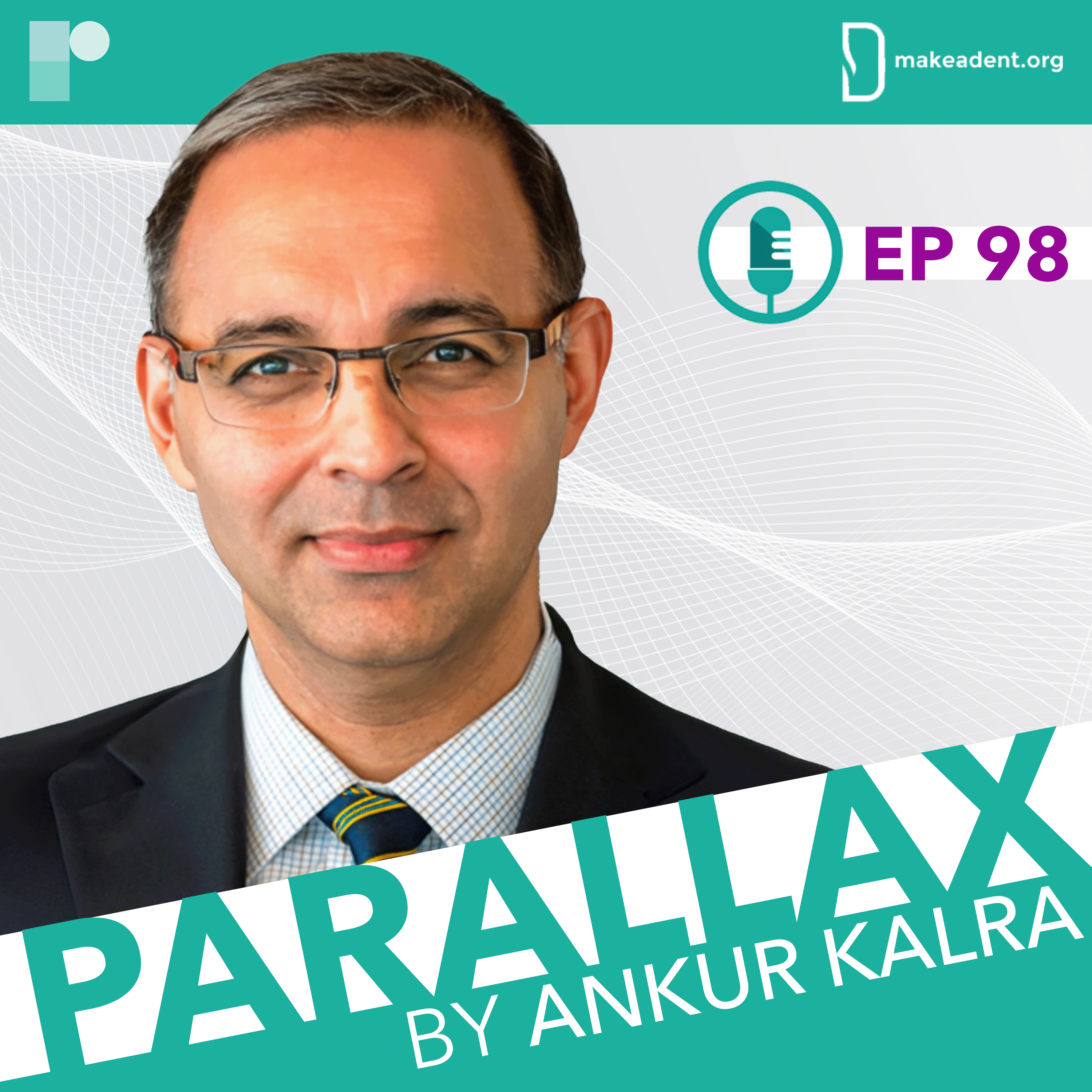
In this week's Parallax, Dr Ankur Kalra welcomes back Dr Jag Singh to discuss Dr Singh's recently published book, "Future Care," which delves into the exciting evolution of medicine over the next 5 to 10 years.
Dr Jagmeet Singh is a Cardiac Electrophysiologist and a Professor of Medicine at Harvard Medical School. He is also the Founding Director of the Resynchronization and Advanced Cardiac Therapeutics Program at Massachusetts General Hospital.
"Future Care" wasn't written overnight; it had been simmering in Dr Singh's mind for nearly a decade. The catalyst for this book was a convergence of factors, including the COVID-19 pandemic and Dr Singh’s personal health journey. Drawing from his experiences across three different countries, his role in patient care and leadership and his unique perspective as a patient himself, Dr Singh explores the crucial question of how medicine can and should evolve.
In this episode, Dr Kalra and Dr Singh delve deeply into the ideation, research, and writing process that brought "Future Care" to life. We learn more about Dr Singh's valuable tips for aspiring authors. Dr Singh unpacks the four key chapters of his book: Sensors, Virtual Care, AI, and the Establishment of a sustainable healthcare system. Looking into the future, Dr Singh paints a vivid picture of the hospital of tomorrow—a place where technology and human touch harmoniously converge. As we adapt to the changes brought about by the pandemic, Dr Singh outlines the necessary steps to foster a reality in which we can utilize these technologies to create more time for human connection.
What advice does Dr. Singh have for our listeners? What does the future of medicine look like? How can we scale high-tech solutions effectively?
Order Dr Singh's book today: mcpress.mayoclinic.org/product/future-care/

Tune in to discover the strategies that Dr. Kalra and Dr. Alasnag are currently employing and gain insights into how these data will shape their future decision-making in the catheterization laboratory. Don't miss this informative discussion at the forefront of interventional cardiology.


In this episode, Ankur and Danielle speak about the evidence in favour of a whole-food plant-based diet to improve cardiovascular health, the ACC prevention guidelines, how to talk to patients about positive dietary change, the issue of lack of nutrition training in cardiovascular fellowships and what Danielle’s diet looks like as a busy whole-food plant-based cardiology fellow. On her own podcast ‘Nutrition Rounds’ Danielle has discussions about evidence-based plant-based nutrition with physicians who are leading experts in nutrition and health.
Hosted by @AnkurKalraMD. Produced by @RadcliffeCardiology.

In this brilliant conversation, Ankur, Emmanouil and Michael unravel the potential advantages, challenges and practical realities of using drug-coated balloons in SVD, and the findings of the latest randomised controlled trials studying this area.
Hosted by @AnkurKalraMD. Produced by @RadcliffeCardiology. [Disclaimer: The use of drug-coated balloons in coronay intervention is still off-label; it has not been approved by the FDA.]

Dawn is an associate editor of the journal Circulation: Cardiovascular Interventions and is widely known for her research program on PCI and peripheral arterial disease (PAD). Ankur and J. Dawn discuss multiple trials/studies that were published in 2018, including ORBITA, PIONEER-II and ABSORB. J. Dawn also shares her thoughts on the latest stent technologies.
Hosted by @AnkurKalraMD. Produced by @RadcliffeCardiology.

They discuss the importance of preventative medicine, their experience of reducing hypertension with non-pharmaceutical and pharmaceutical methods, and the significance of the integrated “team approach” when treating comorbid conditions such as hypertension. Athena also shares her thoughts on cardiologists’ responsibility to shape their patients’ lifestyle choices.
Hosted by @AnkurKalraMD. Produced by @RadcliffeCardiology.

Chest pain is one of the most common reasons for an emergency room visit in the US, with almost 6 million ER visits annually, yet there is no consensus on how to compare the results from various hscTn assays. Tune in to hear Santiago outline the advantages and limitations of using hscTn as a standard biomarket to evaluate patients with suspected ACS in the ER.
Hosted by @AnkurKalraMD. Produced by @RadcliffeCardiology.





